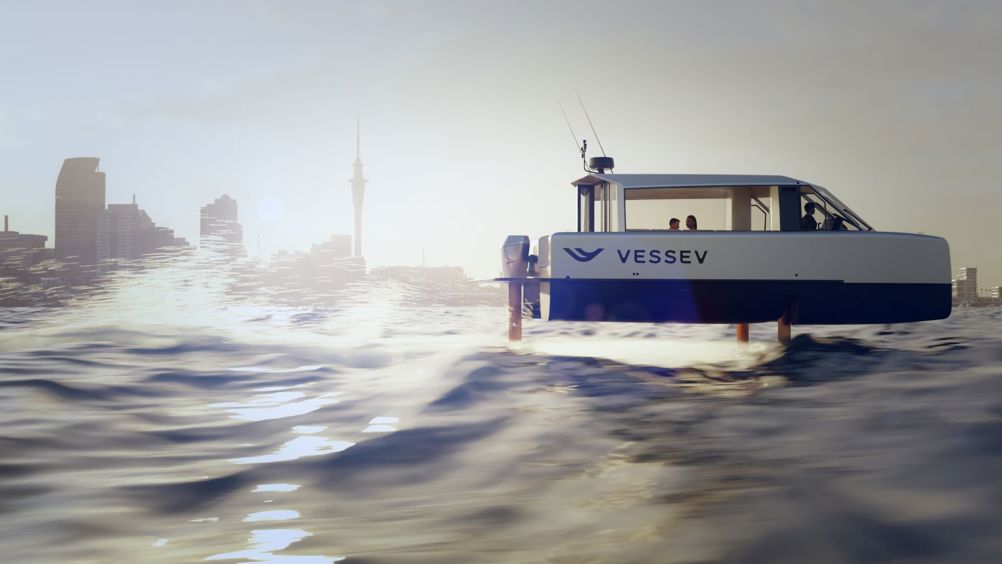Currently undergoing sea trials out of Auckland ahead of a planned certification later in the year, the VS-9 is a 10-passenger fully electric boat with a service speed of 25 knots and a range of 50 nautical miles.
Vessev attributes the VS-9’s performance to its ‘ultra-high authority’ hydrofoil systems, where the foils change shape using high precision flaps under the water. It’s claimed the hydrofoil system was inspired by techniques used by winning teams in the America’s Cup.
Related content
“There are 33 million vessels in the world today with sustainable vessels representing the smallest fraction,” said Eric Laakmann, Vessev CEO. “Through significant enhancements in efficiency, hydrofoiling will play a key role in this once-in-a-generation shift.
“Traditionally, larger vessels are required to deliver a comfortable passenger experience as they can handle the impact of waves and wake. By flying above the waves the VS-9 delivers a large vessel experience on an agile platform that can be berthed and charged in nearly any marina… [and will] enable thousands of new routes around the world that are currently impractical for traditional vessels.”
By travelling above the water rather than through it, hydrofoiling boats massively reduce drag and increase efficiency. Combined with electric propulsion, the technology opens up significant opportunities for urban water transportation. In 2021, Swedish start-up Candela announced it was building an all-electric 30-person hydrofoiling passenger boat to serve the Stockholm archipelago. Vessev already has plans in place to scale up with the VS-18, a 100-passenger vessel that uses the same technology as the VS-9, promising waterborne transport at a fraction of today’s costs.
Visit our jobs site https://jobs.theengineer.co.uk/ to find out about some of the latest career opportunities at industry's biggest employers

“The costs of maintaining and fuelling commercial fossil fuel vessels is quite substantial,” said Laakmann. “We expect that in almost any commercial application, the lifetime cost of ownership of these vessels will be substantially less than comparable fossil fuel vessels.
“To put it into perspective, the VS-9 is undergoing on-water testing with a petrol-powered chase boat following, doing the same motions and distance. At the end of each day, the cost of the petrol fuelling the chase boat is 25 times the cost of the electricity used to charge the VS-9.”
According to Vassev, VS-9 can be charged using existing electric charging infrastructure commonly available in most marinas. With high-speed DC charging in place, recharge times will be up to 0.8 nautical miles of range per minute of charging. Vessev says the VS-9 is on track to be the first vessel of its kind certified for commercial use.











McMurtry Spéirling defies gravity using fan downforce
What a fun demonstration. I wonder if they were brave enough to be in the car when it was first turned over. Racing fan cars would be an interesting...